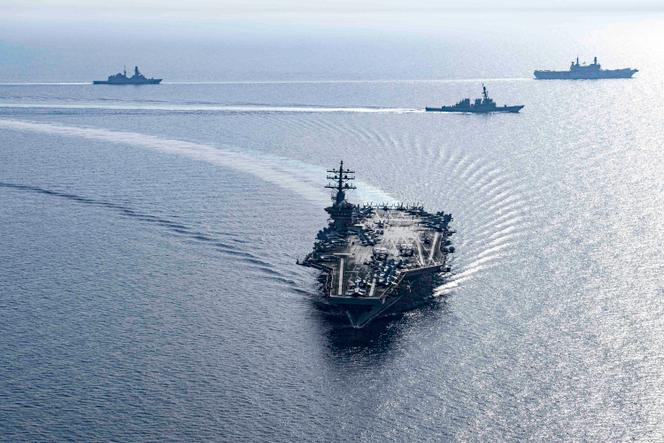


The Houthi drone strike that claimed the life of one person and wounded four others in Tel Aviv, a stone's throw from an American consulate, on Friday, July 19, represents a new escalation in the challenge posed by the Yemeni rebel group to the Israeli state and its Western allies. This act carried out in retaliation for the Israeli bombardment of Gaza, came at a time when the effects of military operations to protect maritime traffic in the Red Sea – where the Houthis had previously focused their attacks – appeared to be very limited. Some official sources are now even questioning whether the approach adopted so far should be revised.
In its Friday, July 19 edition, the day before an Israeli retaliatory raid on Saturday killed six people in the Yemeni port of Hodeïda, The Wall Street Journal quoted an alarmist letter recently sent by Michael Erik Kurilla, the general in charge of US Central Command – the area covering the Middle East - to Defense Secretary Lloyd Austin. In this letter, according to US officials quoted by the newspaper, General Kurilla called for increased economic, diplomatic, and military pressure against the Houthis, given that the actions taken at sea over the past seven months have, in his view, "failed."
The Wall Street Journal also reported that US intelligence is concerned about a Russian plan, presented as credible, to support the Yemeni rebels. While the latter already benefit from financial, technological, and military support from Iran, Moscow is reportedly considering sending them anti-ship missiles. Moscow's plan is presented as a response to Ukrainian strikes on Russian soil using long-range weapons supplied by the US.
"Even if they were set up very quickly, the operations launched by the West against the Houthis are not the panacea that was proposed at the outset," said Héloïse Fayet, in charge of defense issues in the Middle East at the French Institute of International Relations (IFRI). Seven months after the start, in December 2023, of Operation Prosperity Guardian – led by the Americans and the British – and five months after the launch, at the end of February, of Operation Aspides, under the aegis of the European Union (EU), all indicators are red.
During a visit to the Operation Aspides headquarters in Larissa, Greece, on July 5, the EU's High Representative for Foreign Affairs, Josep Borrell, pointed out that traffic through the Suez Canal, which links the Red Sea to the Mediterranean, had been "halved" since the start of the conflict between Israel and Hamas in October 2023. Revenues from rights of passage through the canal, a key resource for Egypt, meanwhile, fell by 23% over the 2023-2024 fiscal year. With an almost obligatory detour via the Cape of Good Hope (South Africa), the journey time for merchant ships has been extended from 10 to 14 days, and "the cost of a container between China and Europe has doubled," Borrell said.
You have 60.81% of this article left to read. The rest is for subscribers only.
